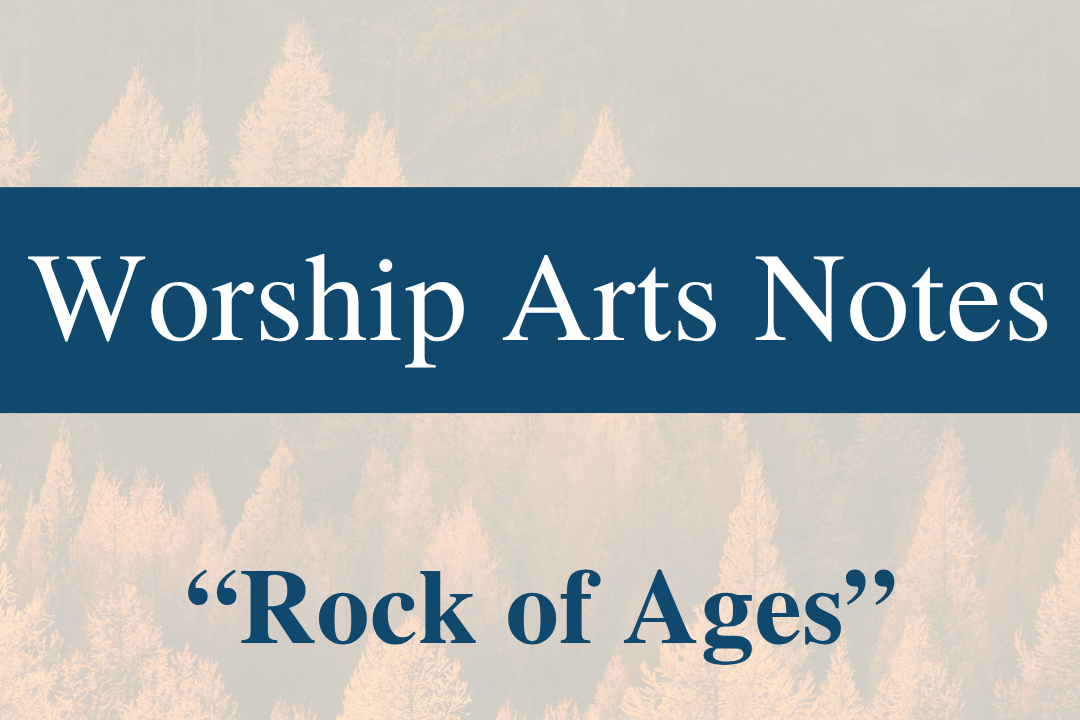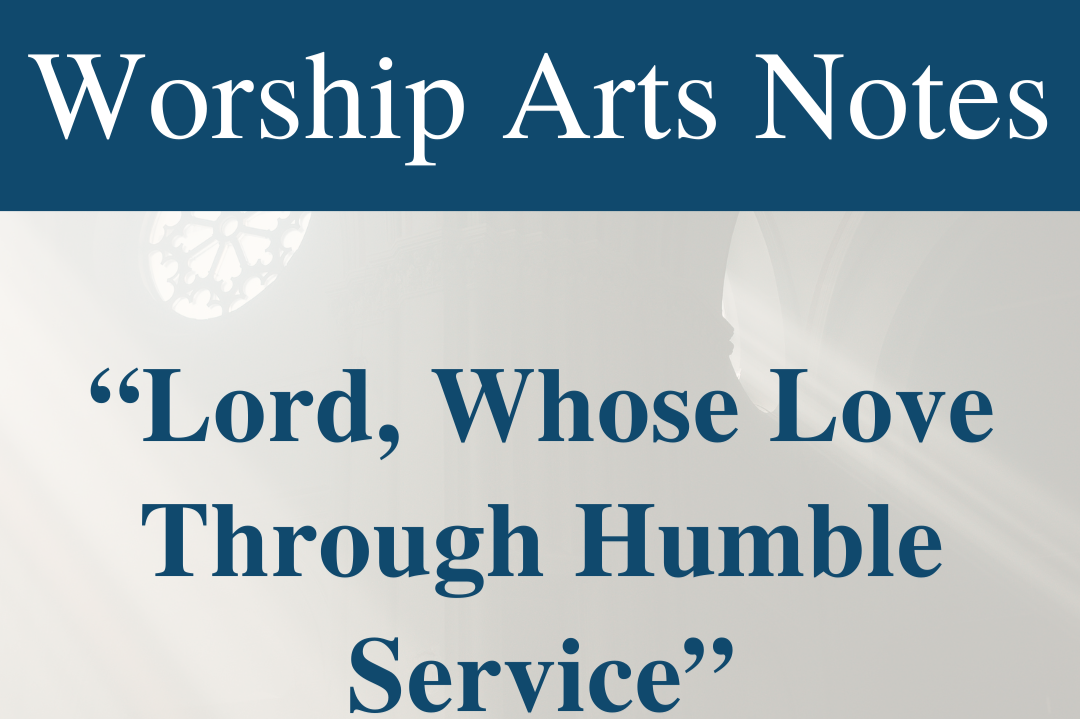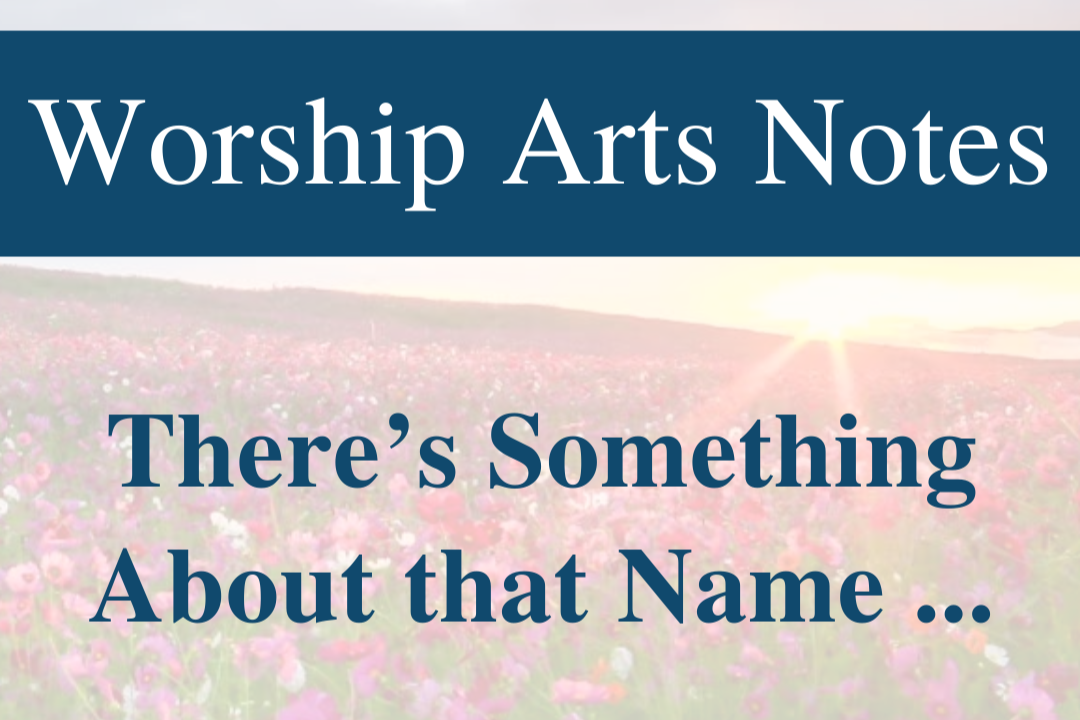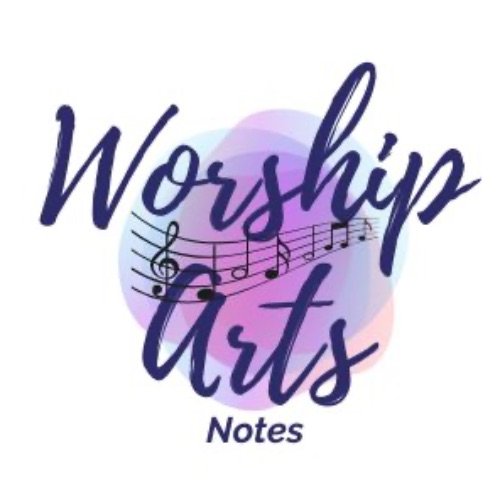





Worship Arts Notes
Originally in five stanzas, “Easter People, Raise Your Voices” by Rev. William M. James first appeared in the Songs of Zion Hymnal (1981), in its present form…

Worship Arts Notes
Can you imagine what the disciples and followers of Jesus must have said as word spread that he was not in the tomb? The words “He lives” seem to be one plausible option…

Worship Arts Notes
All glory, laud, and honor,
To thee, Redeemer, King,
To whom the lips of children
Made sweet hosannas ring.
Thou art the King of Israel,
Thou David’s royal Son,
Who in the Lord’s name comest,
The King and Blessed One.

Worship Arts Notes
We love because He first loved us. 1 John 4:19
This simply stated, lilting musical testimony has been one of the Sunday School favorites since it was first published in leaflet form in 1855. It has since been translated into various languages and has been included in numerous evangelical hymnals…

Worship Arts Notes
The word worship is a contraction of an old expression in the English language, woerth-scipe, denoting the giving of reverent praise to an object of superlative worth…

Worship Arts Notes
John and Charles Wesley strongly believed in having congregational singing at their meetings. They believed that their hymns would help to convict sinners, encourage the saints, and educate all in the Christian faith…

Worship Arts Notes
Lead On, O King Eternal
When Ernest Shurtleff’s seminary class was preparing for their graduation, they turned to Ernest, who had written two volumes of poetry and asked him to write a hymn for their graduation ceremony. He wrote “Lead on, O King Eternal” for that occasion...

Worship Arts Notes
On a cold, windy night in Germany in the early 1500s, a young peasant, Martin Luther, came very near being hit by a bolt of lighting during a thunderstorm. Following his close call with death, he changed his course of study from law to theology...

Worship Arts Notes
The hymn “When Morning Gilds The Skies” was written by a German author whose name has been lost in time. It first appeared in a Roman Catholic hymnal, Catholisches Gesangbuch in 1828. That hymnal originated in Wurzburg, on the Main River near Frankfurt. Wurzburg in known for its picturesque countryside, with hills and streams. It’s no wonder that a poet, seeing that beauty, would be inspired to write a hymn praising God for natural wonders...

Worship Arts Notes
Among the most prominent New Testament texts is the discourse on love found in I Corinthians 13. Hal H. Hopson has paraphrased part of this beautiful text in what has become one of the most popular late 20th-century hymns, appearing in many major hymnals published in the U.S. since 1980...

Worship Arts Notes
Life can often be a restless, disrupted existence until we give ourselves wholeheartedly to something beyond ourselves and follow and obey it supremely. Such implicit trust in God’s great love and wisdom with a sincere desire to follow His leading should be every Christian’s goal. Our willingness to trust and obey is always the first step toward God’s blessings in our lives...

Worship Arts Notes
William P. Merrill (1867-1954) was a Presbyterian pastor who served several churches during his lifetime—most notably Brick Presbyterian Church in New York City, where he served from 1911 until his retirement in 1938. Merrill wrote several hymns during his lifetime, to include “Rise Up, O Men of God.” He wrote it to support a burgeoning men’s movement within the church...

Worship Arts Notes
In 1925, 19 year-old Albert E. Brumley left his home with nothing but $1.25 in his pocket. Driven by a dream, he walked 26 miles from Spiro, Ok to Hartford, AR, and knocked on E.M. Bartlett’s door. “Mr. Bartlett, I hear you can teach a fella ‘bout music’”, the young Albert said. Even though they’d never met, Bartlett took Brumley in, letting him sleep on his couch with the understanding that Albert would go to work for the Hartford Music Company after graduating from the Hartford Music Institute...

Worship Arts Notes
Though John Wesley is called the father of Methodism, his brother Charles Wesley may be called the father of Methodist congregational singing...

Worship Arts Notes
Robert Robinson was known as an unruly child while growing up. At only eight years old his father died, and he was raised by his loving mother. In spite of Robert’s intellectual giftedness, he had a penchant for mischief...
